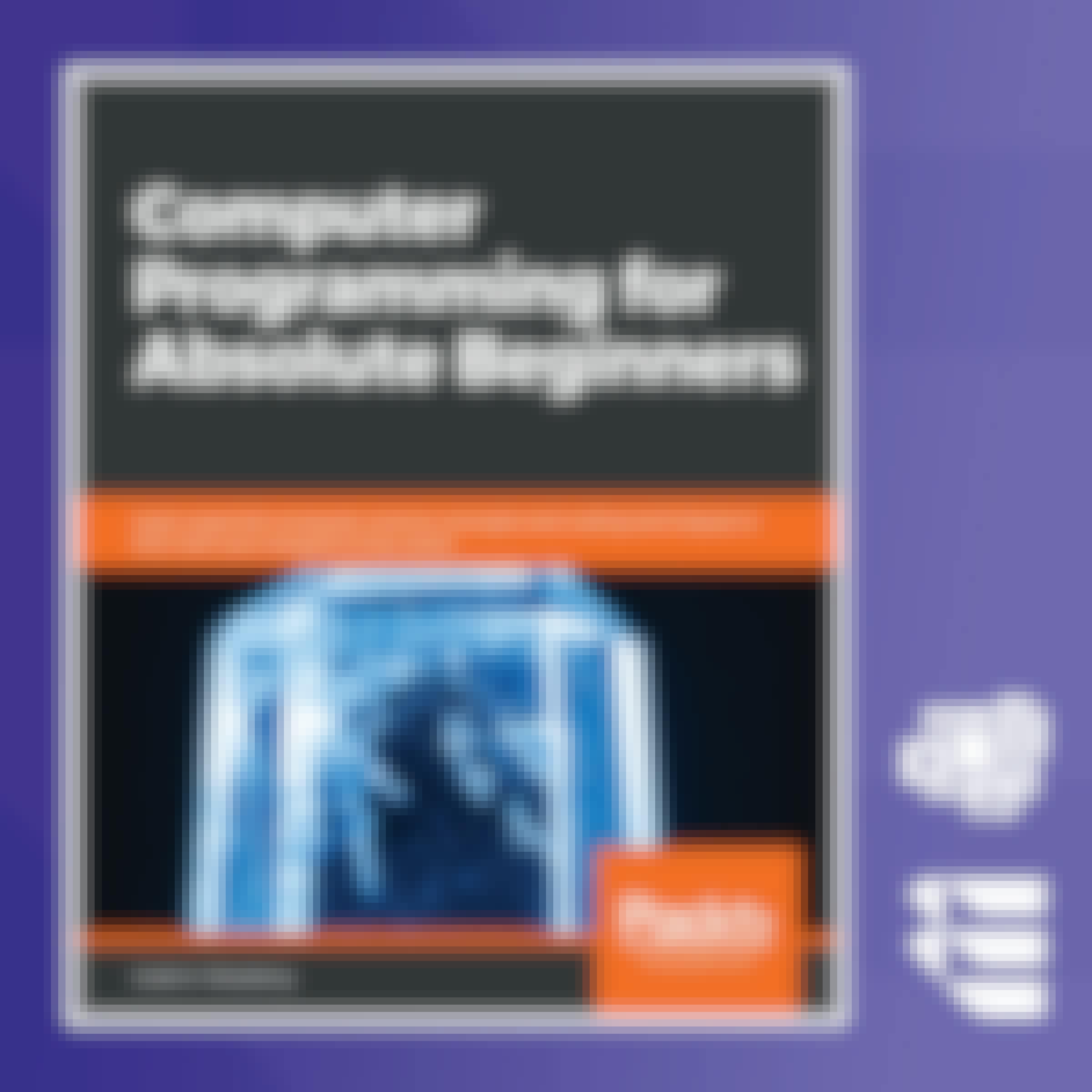- Browse
- C Programming
C Programming Courses
C programming courses can help you learn syntax, data structures, algorithms, and memory management. You can build skills in debugging, optimizing code, and implementing efficient algorithms. Many courses introduce tools like GCC for compiling code, GDB for debugging, and libraries such as the Standard Template Library (STL) to enhance functionality. You'll also explore concepts like pointers, file handling, and dynamic memory allocation, which are crucial for developing robust applications.
Popular C Programming Courses and Certifications
 Status: PreviewPreviewP
Status: PreviewPreviewPPohang University of Science and Technology(POSTECH)
Skills you'll gain: Internet Of Things, Cloud Platforms, IBM Cloud, Application Development, Cloud Computing, Google Cloud Platform, Microsoft Azure, Amazon Web Services, Emerging Technologies, Network Protocols, Data Analysis
4.3·Rating, 4.3 out of 5 stars323 reviewsBeginner · Course · 1 - 3 Months
 Status: NewNewStatus: Free TrialFree Trial
Status: NewNewStatus: Free TrialFree TrialSkills you'll gain: System Programming, Interoperability, Object Oriented Programming (OOP), Data Structures, Software Development, Debugging
Intermediate · Course · 1 - 4 Weeks
 Status: Free TrialFree TrialU
Status: Free TrialFree TrialUUniversity of Colorado Boulder
Skills you'll gain: Object Oriented Programming (OOP), Object Oriented Design, Software Documentation, Software Engineering, Maintainability, Programming Principles, Software Design, Python Programming
4.5·Rating, 4.5 out of 5 stars12 reviewsIntermediate · Course · 1 - 3 Months
 Status: NewNewStatus: Free TrialFree Trial
Status: NewNewStatus: Free TrialFree TrialSkills you'll gain: Data Structures, Programming Principles, Object Oriented Programming (OOP), Debugging, Software Development
Beginner · Course · 1 - 4 Weeks
 Status: PreviewPreviewV
Status: PreviewPreviewVVanderbilt University
Skills you'll gain: Event-Driven Programming, Programming Principles, Computer Programming, Distributed Computing, Computer Science, Computational Thinking, Computer Networking, Data Structures, Natural Language Processing, Algorithms, Problem Solving, Application Programming Interface (API)
Beginner · Course · 1 - 3 Months
 Status: NewNewStatus: Free TrialFree Trial
Status: NewNewStatus: Free TrialFree TrialSkills you'll gain: Rust (Programming Language), Relational Databases, Databases, Application Development, SQL, Object Oriented Programming (OOP), Data Structures, File I/O, Software Development, Command-Line Interface, Data Import/Export
Intermediate · Course · 1 - 4 Weeks
 Status: Free TrialFree TrialJ
Status: Free TrialFree TrialJJohns Hopkins University
Skills you'll gain: Performance Tuning, Data-oriented programming, System Programming, C and C++, Computer Architecture, Algorithms, Development Environment, Debugging
2.7·Rating, 2.7 out of 5 stars62 reviewsIntermediate · Course · 1 - 3 Months
 Status: NewNew
Status: NewNewSkills you'll gain: Programming Principles, Debugging, Computer Programming, Application Design, Computer Science, Maintainability, Object Oriented Programming (OOP), Software Development, Data Management, Algorithms, Software Architecture
Beginner · Course · 3 - 6 Months
 Status: NewNewStatus: Free TrialFree Trial
Status: NewNewStatus: Free TrialFree TrialSkills you'll gain: C++ (Programming Language), Software Documentation, System Programming, Technical Documentation, Application Development, Maintainability, Data Structures, Generative AI, Application Performance Management, Algorithms, Scalability
Beginner · Course · 1 - 3 Months
 Status: NewNewStatus: Free TrialFree Trial
Status: NewNewStatus: Free TrialFree TrialSkills you'll gain: Bash (Scripting Language), Shell Script, Linux Commands, Unix Shell, Unix Commands, Linux Administration, Linux, Scripting, Scripting Languages, File Management, Command-Line Interface, Debugging, System Configuration, User Interface (UI), IT Automation, Interactive Design, File I/O, Programming Principles
5·Rating, 5 out of 5 stars6 reviewsBeginner · Specialization · 1 - 3 Months
 Status: NewNewStatus: Free TrialFree Trial
Status: NewNewStatus: Free TrialFree TrialSkills you'll gain: Other Programming Languages, Data Structures, Object Oriented Programming (OOP), Programming Principles, Software Development
Intermediate · Course · 1 - 4 Weeks
 Status: Free TrialFree TrialD
Status: Free TrialFree TrialDDuke University
Skills you'll gain: Object Oriented Programming (OOP), Java, Java Programming, Software Engineering, Programming Principles, Computer Programming, Software Design, Predictive Modeling, Algorithms, Data Structures, Performance Testing, File I/O, Debugging, Application Programming Interface (API)
4.6·Rating, 4.6 out of 5 stars1.5K reviewsBeginner · Course · 1 - 3 Months
In summary, here are 10 of our most popular c programming courses
- Programming with Cloud IoT Platforms: Pohang University of Science and Technology(POSTECH)
- Rust Programming Essentials: Unit 4: Pearson
- BiteSize Python: Object Oriented Programming: University of Colorado Boulder
- Rust Programming Essentials: Unit 1: Pearson
- Programming for a Networked World : Vanderbilt University
- Rust Programming Essentials: Unit 5: Pearson
- Introduction to Parallel Programming with CUDA: Johns Hopkins University
- Computer Programming for Absolute Beginners: Packt
- Advanced C++ Programming and Modern Practices: Microsoft
- Linux Bash Scripting & Shell Programming: EDUCBA










